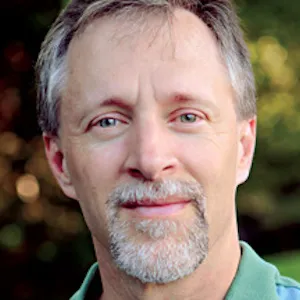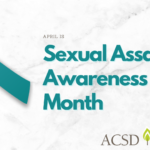One of the odd developments in student affairs over recent years is the emergence of training language in so many places—sometimes the wrong places. For example, we hear about the need to provide faculty, staff, and students diversity training, Title IX training, cyber-security training, and conflict of interest training. We offer training in these areas—not education. What’s the difference between education and training? When should training be used and when should it not be used?
The simple explanation is that training is what someone offers an individual seeking to obtain excellence, or at least improvement, in a particular area. Whereas training offers one (and only one) method of obtaining excellence, education explores a variety of different ends with a variety of potential methods that might lead to the ends. For example, one does not provide one’s children an explanation about all the different approaches to potty training and ask them to choose the one they find most persuasive (that would be liberal education). Instead, the parent simply chooses the one they find most persuasive and then applies it to the child. The same thing happens with coaches or music teachers. They do not explain all the different ways to achieve excellence and ask the participant to choose. The coach or teacher is expected to know the best way to achieve an end and then help the student practice to reach that end that the student desires.
Unfortunately, one finds the term “training” used when we really should be using the word “education.” Consider “diversity training.” Such training often assumes agreement about the ends of diversity and the means to reach the goals. Thus, new faculty, staff, and students are not presented with various ways of thinking about diversity that may stem from different moral, philosophical, and religious traditions. Instead, they are provided with one way to think about diversity and achieve it. As one critic observed, “There might be nothing wrong with training students in equity and social justice were it not for the inconvenient fact that a college campus is where these ideals and others like them are to be rigorously examined rather than piously assumed. It’s the difference between a curriculum and a catechism.”[i] Said another way, it is the difference between education and training.
Not surprisingly, diversity training tends to fail.[ii] A meta-analysis of forty years of research found that diversity training did change some thinking in the short-term, but it failed to change people’s thinking, affections, and behavior in the long term.[iii]
Catechisms are usually helpful for those with a prior commitment to the cause, but to those who have questions and doubts, they are not always effective unless space is also provided for education to occur. Student affairs leaders must realize that they often need to provide education in these instances and not simply training.
More specific to our context, my colleague George Yancey has found diversity training to be ineffective on Protestant college campuses as well. He noted in 2010, “My research has failed to document many potentially lasting benefits from [diversity programs at Protestant Colleges]….I have reluctantly come to the conclusion that few of the institutional diversity programs are effective in creating a social atmosphere that supports racial diversity on protestant campuses.”[iv] Not surprisingly, he found the importance of faculty education and integration of diversity conversations into the curriculum.
Of course, there are times you simply need training. You do not want to get sued for a Title IX issue, therefore you need training on Title IX policy and practice. There are some things you will not be able to debate with the judge, the jury, or the contemporary legal interpretation.
Yet, beyond realizing the need for training at times, we also must recognize something else. I recently asked a class of student life students the question headlining this article. Are they engaged in education, training, or both? The first student responded that they are primarily doing education. I responded that student affairs staff must recognize that part of their role involves knowing when to switch from education to training when the ends are agreed upon but a student does not have the knowledge of the best means. We call this relationship a mentoring or coaching relationship (versus a liberal arts teaching relationship).
Consider the task of creating and sustaining an excellent student organization. We may give students some ideas about the different methods for achieving that end, but in reality students may want much more specific training about how to create and sustain an excellent student group that requires specific virtues, practices, and wisdom for this endeavor. You will need to train them in this endeavor.
Or consider the terms moral education and moral formation. At times, we need to educate our students about the diversity and consequences of different approaches to stewarding their bodies or self-control. However, when our students agree to pursue specific forms of the latter and hope to improve in these endeavors, we then become trainers, coaches, or mentors who hopefully have some idea about how to coach them to obtain this end that they want to reach, such as improvement in stewardship of their body or self-control. Understanding the distinction between education and training provides new insight into the sometimes-murky nature of our work. The key is being able to recognize when you need to switch from being an educator to a trainer.
[i] Lyell Asher, “How Ed Schools Became a Menace,” Chronicle of Higher Education, April 8, 2018, https://www.chronicle.com/article/how-ed-schools-became-a-menace/
[ii] Pamela Newkirk, “Why Diversity Initiatives Fail: Symbolic Gestures and Millions of Dollars Can’t Overcome Apathy,” The Chronicle of Higher Education, November 6, 2019, https://www.chronicle.com/article/why-diversity-initiatives-fail/; Frank Dobbin and Alexandra Kalev, “Why Diversity Programs Fail,” Harvard Business Review, August 2016,
[iii] Katerina Bezrukova, Chester S. Spell, Jamie L. Perry, and Karen A. Jehn, “A Meta-Analytical Integration of Over 40 Years of Research on Diversity Training Evaluation,” Psychological Bulletin 142, no. 11 (2016): 1227–74.
[iv] George A. Yancey, Neither Jew nor Gentile : Exploring Issues of Racial Diversity on Protestant College Campuses (New York: Oxford University Press, 2010), Understanding the Difference







